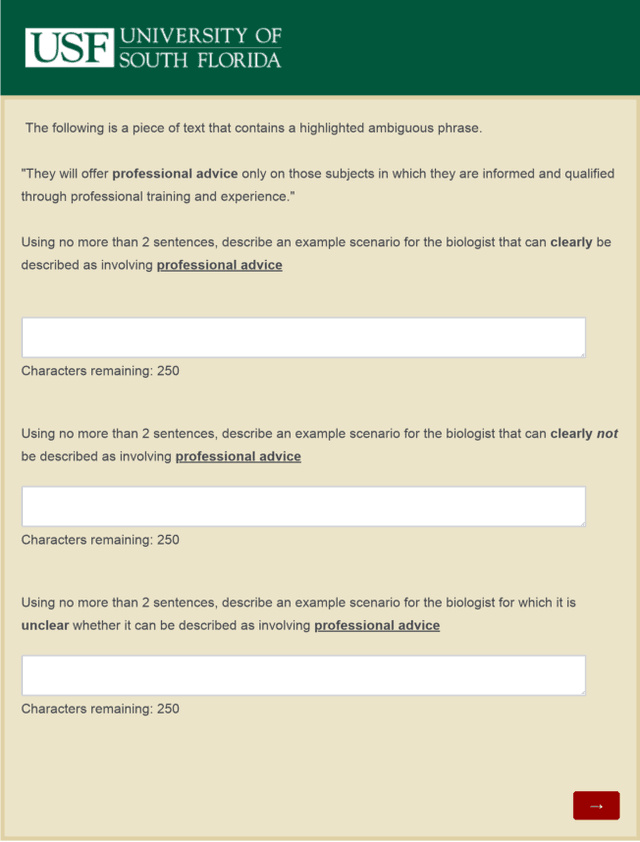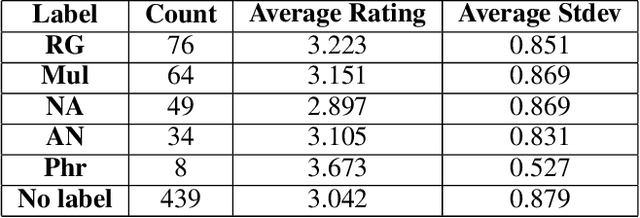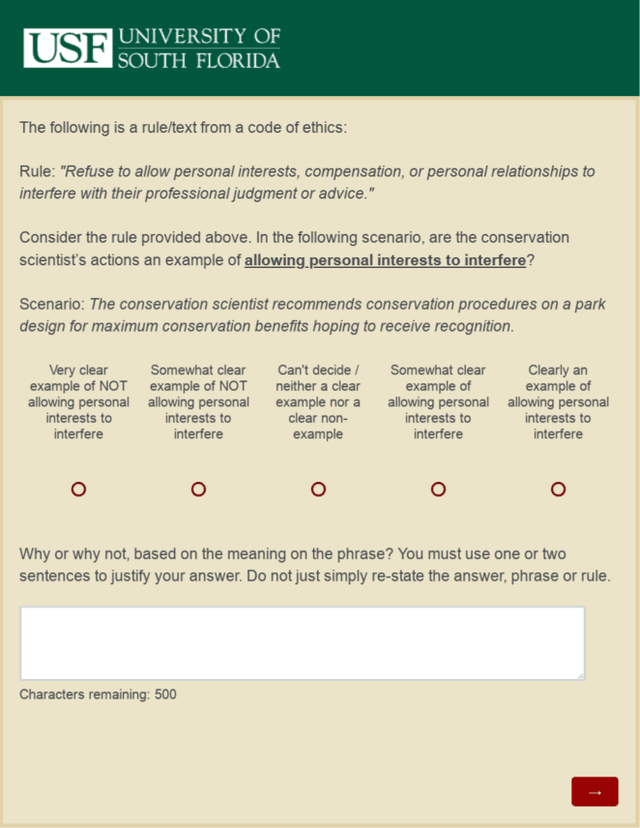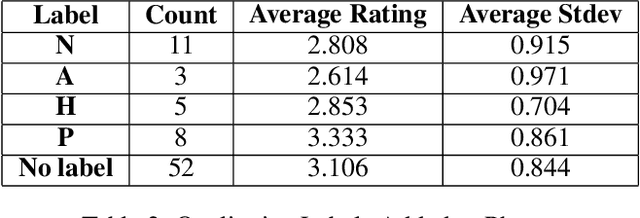Scenarios and Recommendations for Ethical Interpretive AI
Paper and Code
Nov 05, 2019



Artificially intelligent systems, given a set of non-trivial ethical rules to follow, will inevitably be faced with scenarios which call into question the scope of those rules. In such cases, human reasoners typically will engage in interpretive reasoning, where interpretive arguments are used to support or attack claims that some rule should be understood a certain way. Artificially intelligent reasoners, however, currently lack the ability to carry out human-like interpretive reasoning, and we argue that bridging this gulf is of tremendous importance to human-centered AI. In order to better understand how future artificial reasoners capable of human-like interpretive reasoning must be developed, we have collected a dataset of ethical rules, scenarios designed to invoke interpretive reasoning, and interpretations of those scenarios. We perform a qualitative analysis of our dataset, and summarize our findings in the form of practical recommendations.
 Add to Chrome
Add to Chrome Add to Firefox
Add to Firefox Add to Edge
Add to Edge